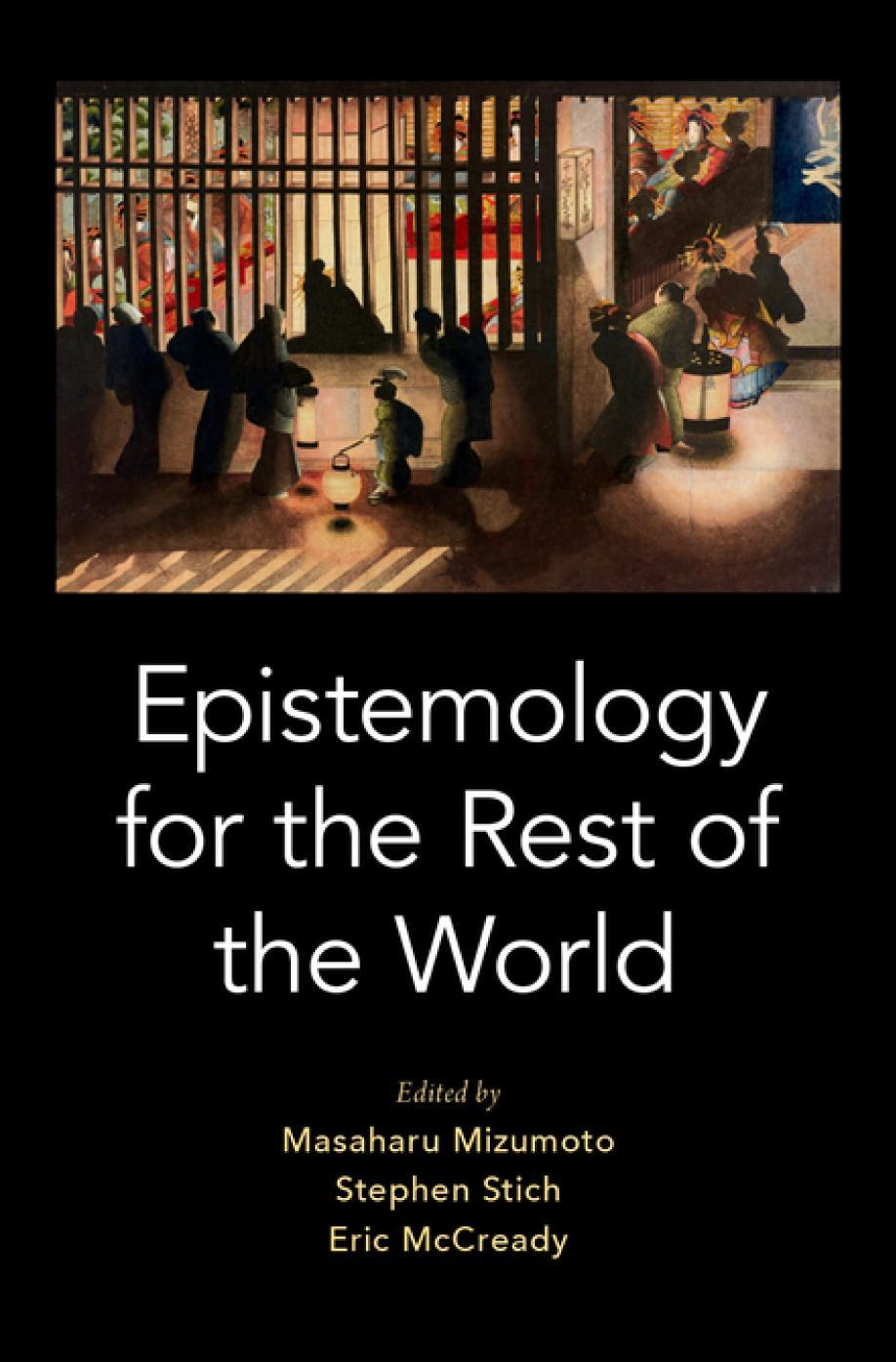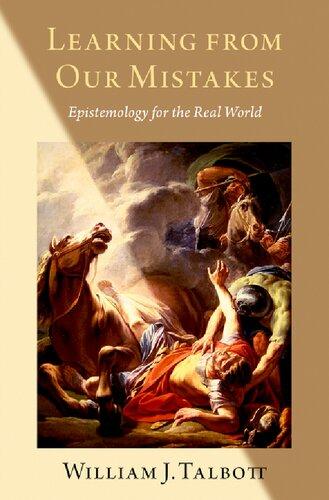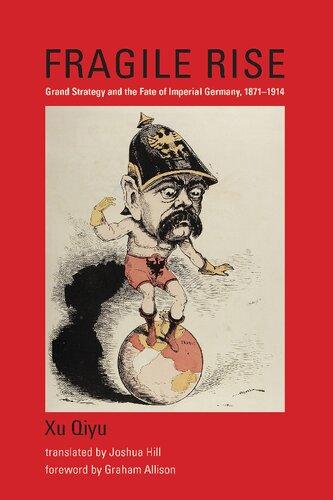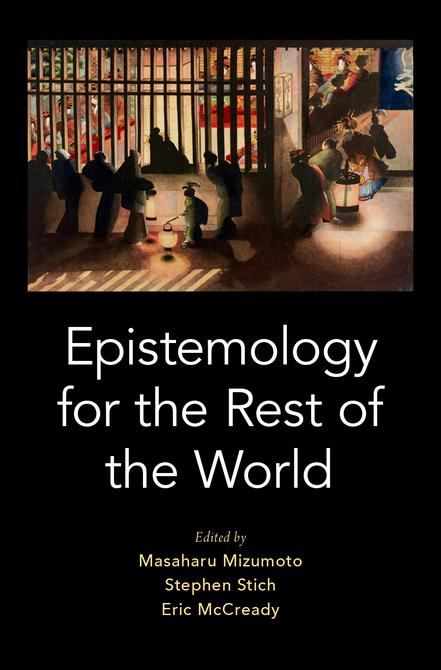MANIFESTO
STEPHEN STICH AND MASAHARU MIZUMOTO
Anglophone scholars in the human sciences often unwittingly frame their research hypotheses in English- specific terms. For example, when evolutionary biologists postulate a “universal sense of right and wrong” or puzzle over the evolutionary origins of “animal altruism,” there is little awareness of the problematical fact that their words “right,” “wrong,” and “altruism” are Englishspecific constructs that lack precise equivalents in many languages of the world, including many European languages (Goddard and Wierzbicka 2014, 251).
Philosophers who refuse to bother about semantics, on the grounds that they want to study the nonlinguistic world and not our talk about that world, resemble astronomers who refuse to bother about the theory of telescopes, on the grounds that they want to study the stars and not our observation of them. Such an attitude may be good enough for amateurs; applied to more advanced inquiries, it produces crude errors. Those metaphysicians who ignore language in order not to project it onto the world are the very ones most likely to fall for just that fallacy, because the validity of their reasoning depends on unexamined assumptions about the structure of the language in which they reason (Williamson 2006).
1. A BIT OF HISTORY
Throughout much of the history of Western philosophy, the central goals of epistemology have included giving an account of what knowledge is, explaining how knowledge is possible, and setting out and defending a normative account of belief revision that specifies the good and bad ways of forming and updating beliefs. Many methods were used in an effort to achieve these goals.
In the middle years of the twentieth century, a new method became enormously influential in many branches of philosophy. The analysis of philosophically important concepts came to be seen as the central project of philosophy, and the method to be used was the careful examination of the ordinary use of words. This philosophical movement became known as “The Linguistic Turn” (Rorty [1962]1992), and its method was embraced by many philosophers concerned with epistemological issues. For example, according to Norman Malcolm,
If we want to examine the use of a word we must study the use of the sentences in which the word occurs. We investigate the concept of knowledge by studying the usage of sentences in which “know” and cognate words occur. (1951, 336; emphasis added)
More recently, epistemology has seen what Peter Ludlow has dubbed “the new linguistic turn,” as philosophers debating the contextualist response to skepticism and related issues have “explored the possibility that there might be linguistic evidence for or against” contextualism. Ludlow (2005) goes on to note that though the new linguistic turn in epistemology “breaks with the original linguistic turn in a number of respects, [it] follows it in the idea that we can use features of our language of knowledge attribution to support or . . . refute certain positions in epistemology” (12). A great deal has been written about the historical and philosophical reasons for the “first” linguistic turn; it is widely agreed that Wittgenstein played an important role, and so did Logical Positivism.
However, many philosophers have argued that the linguistic turn led epistemology in the wrong direction. Quine (1969) urged that epistemology should be naturalized and treated as a branch of psychology. Kornblith (2002, 28) agrees that epistemology should be naturalized and argues that knowledge is a natural kind to be studied by cognitive ethology. Sosa (2007) argues that the claim that analytic philosophy in general, and epistemology in particular, is primarily concerned with conceptual analysis is “deplorably misleading” (100). And Allan Hazlett (2010) has argued that the marriage of epistemology and the linguistic analysis of ordinary language is an unhappy one and it is time for a divorce.
2. THE MOTIVATION FOR THIS VOLUME
The challenges to the linguistic turns in epistemology raised by these philosophers and others are interesting and important. They were the
[ viii ] Stephen Stich and Masaharu Mizumoto
backdrop for the planning of this volume. But on center stage when we decided to assemble the volume was a feature of the linguistic turns in epistemology that has received much less attention. The linguistic turns did not merely claim that we can “use features of the language of knowledge attribution to support or refute certain positions in epistemology” (Ludlow). Rather, as the earlier quote from Ludlow makes clear, it claimed that we can use features of “our” language, and “our language” was almost always English. The new linguistic turn in epistemology attempts to use features of contemporary English knowledge attribution to support or refute certain positions in epistemology. In a similar way, the first linguistic turn in epistemology was actually aimed at analyzing the concept of knowledge used by contemporary speakers of English, by studying the usage of English sentences in which the English word “know” and cognate words occur.
The central question we want to pose in this volume is: Is there any justification for this practice? Another way to pose the question is: What’s so special about contemporary English?
3. WHAT’S SO SPECIAL ABOUT ENGLISH?
Contemporary English is one of approximately 6,000 languages spoken in the world. It is the native language of less than 6% of the world’s population. Moreover, when Western epistemology emerged, in Ancient Greece, English did not exist. So why should the usage of sentences in contemporary English in which “know” and cognate words occur, the concept of knowledge expressed by those words, or features of the language of knowledge attribution in contemporary English, play any special role in epistemology?
In addition to their theoretical importance, we suspect that these questions are of considerable practical importance for philosophers around the world. Though it is not often openly discussed, we think there is reason to believe that the dominant role of English usage and English locutions of knowledge attribution has a demoralizing effect on many philosophers outside the English- speaking world. Young philosophers who were initially interested in epistemology are, we believe, growing disillusioned with contemporary epistemology, where subtle facts about English usage are given great weight, and facts about Japanese or Chinese or Hindi or Korean usage are never mentioned. This may be part of the explanation for the relative lack of interest in and sympathy with analytic epistemology in Japan and elsewhere in Asia.
Is there any justification for this practice? One possible answer invokes what might be called the universality thesis, which claims that the properties
of the English word “know,” English sentences of the form “S knows that p,” and related locutions that have been studied by Anglophone epistemologists are shared by the standard translations of these expressions in most or all languages. If this were true, then the focus on English would simply be a matter of convenience for the vast majority of analytic epistemologists who are native speakers of or fluent in English.
There are a number of different ways in which the universality thesis has been or might be defended. Some of them are quite general, making claims about all sentences in all natural languages. Others are specific to lexical terms like “know” or sentences involving them. We’ll start with the general defenses.
According to Jerrold J. Katz (1976), what makes natural languages unique is what he calls the “effability thesis”: “Every proposition is the sense of some sentence in each natural language” (37). And the effability thesis, Katz maintains, entails the “translatability thesis”:
For any pair of natural languages and for any sentence S in one and any sense σ of S, there is at least one sentence S′ in the other language such that σ is a sense of S′. (39)
Similar claims have been made by Sapir (1949) and van Benthem (1991). Von Fintel and Matthewson (2008) maintain that “a weakened version of translatability [that allows differences in presuppositions, implicature, etc., but still] maintains that at the level of core truth- conditional content, what one language can express any other can express as well . . . is a position that is quite widespread among linguists, and it seems like a reasonable stance to us as well” (2008, 146).
However, it is far from clear that either effability or translatability would provide the kind of universality that would be needed to justify the practice of focusing on English terms and sentences in epistemology and elsewhere in philosophy. For Katz and other defenders of the translatability thesis concede that there may be lexical items in one language (say, English) that have no translation into some other languages. For example, there are no words in Pirahā for “neutrino” and “mass,” and no (current) way to translate “Neutrinos have mass.” But Katz (1976) views this as merely a “temporary vocabulary gap” (40). Von Fintel and Matthewson follow suit, quoting Sapir (1949) saying it is “purely and simply a matter of vocabulary and of no interest whatever from the standpoint of linguistic form” (154). But if there are no sentences in contemporary Japanese (or Mandarin or Hindi) that have the same truth- conditional content as English sentences of the form “S knowns that p,” and no sentences in contemporary English
[ x ] Stephen Stich and Masaharu Mizumoto
that have the same truth- conditional content as Japanese sentences of the form “S shitte-iru p” or “S wakatte-iru p” (which are typically viewed as the standard translations of “S knows that p”), then it is hard to see how the practice of focusing on English usage in epistemology would be vindicated by the (alleged) fact that a new term which captures the concept expressed by the English term “knows” could be introduced into Japanese.
A more promising approach to defending the universality thesis puts general claims about the nature of language to one side and focuses on the contemporary English term “know,” the concept it expresses, and the use of contemporary English sentences of the form “S knows that p.” If the concept is expressed by an ordinary expression in all languages, then the practice of focusing on contemporary English terms, concepts, and sentences in epistemology is much less problematic (though not unproblematic, since one might have concerns about the “linguistic turns” themselves).
Perhaps the best known defenders of the claim that “know” is a lexical universal are Anna Wierzbicka and Cliff Goddard, the leaders of the Natural Semantic Metalanguage (NSM) program. According to Wierzbicka and Goddard, “know” is a semantic prime common to all languages (Goddard 2010, 462 and 474; Wierzbicka 2011, 382; Goddard and Wierzbicka 2014, 12). Though this is interesting and provocative work, we are not convinced that the evidence offered by researchers in the NSM tradition supports a version of the universality thesis that will vindicate the focus on contemporary English in epistemology. At the center of our concern is the criterion of concept identity and cross-linguistic meaning identity that is appropriate for an epistemological analysis of knowledge.
Frank Jackson (1998) maintains that if an English speaker’s intuitions about Gettier cases are different from “ours” (i.e., his and those of most philosophers), and if it is clear that she is not confused about the cases being considered, then the right thing to conclude is that her concept of knowledge is different from “ours.” But the evidence marshaled in the NSM tradition gives us no reason at all to think that speakers of all languages share “our” Gettier intuitions. Indeed, there is some evidence suggesting that not all English speakers share “our” Gettier intuitions (Starmans and Friedman 2012, 2014). Jackson’s view on concept individuation (or something close to it) was shared by Fred Dretske (pers. comm. with Mizumoto). The sort of evidence about Gettier intuitions that Jackson and Dretske would require before concluding that many (or most or all) languages have a term expressing the same concept that “know” expresses in English was not available to Wierzbicka and Goddard. So if this, or something in this vicinity, is the appropriate notion of concept identity for epistemology—and
we think it is— then Wierzbicka and Goddard have not come close to showing that “know” is a semantic universal.
Similarly, if “know” in English is factive, then, for epistemological purposes, a verb in another language does not have the same meaning if it is non- factive. But here again the evidence marshaled in the NSM tradition clearly does not establish that verbs standardly translated as “know” are factive. Indeed, in an influential paper, Allan Hazlett (2010) has argued that “know” in English is not factive! We take no stand on Hazlett’s provocative claim. What makes his paper important for our purposes is that it shows how hard it is to establish whether a verb is factive. If it has not been done for “know” in contemporary English, it is clear that work in the NSM tradition has not shown whether the standard translations for “know” are factive in Japanese (or Mandarin or Hindi or Pirahā). This provides another reason for concluding that Wierzbicka, Goddard, and their colleagues have not made a persuasive case that “know” is the sort of semantic universal that would justify the practice of epistemologists focusing on the contemporary English term “know” and the concept it expresses.
Is the universality thesis true? The answer, we submit, is that at present, we really don’t know. And since the universality thesis is the most obvious way to defend the prevailing practice of focusing on the epistemic language and epistemic concepts of contemporary English speakers, it is important to find out. Thus, the most important claim of our manifesto is that epistemologists (and linguists, and psychologists and experimental philosophers) should pay much more attention to the epistemic language and epistemic concepts that prevail in cultures around the world. Cross-linguistic and cross- cultural analysis of epistemic terms, sentences, and concepts has a crucial role to play in philosophical epistemology.
One possible outcome of the cross-linguistic and cross- cultural studies that we are urging is the discovery that “know” and its standard translations are indeed cross- cultural universals, expressing the same concept and exhibiting the same linguistic properties in all languages. This would be a remarkable discovery that would cry out for an explanation. It would open an important new area of interdisciplinary inquiry. The other possible outcome—and the one we suspect is more likely—is that the universality thesis is false, and that the epistemic concepts and locutions of contemporary English are culturally local and do not have close counterparts in many other languages and cultures. How should epistemologists deal with this outcome?
We think it important for epistemologists to explore and debate the options. In the remainder of this brief manifesto, we’ll sketch three of those
[ xii ] Stephen Stich and Masaharu Mizumoto
options, though we are under no illusion that they are the only options, or the best ones.
4. THREE WAYS OF DEALING WITH THE FALSEHOOD OF THE UNIVERSALITY THESIS
The first option we’ll consider is suggested by Paul Grice (1989) in a passage in which he considers the possibility that other people may not use the philosophically important expressions he is analyzing in the same way he does.
Even if my assumption that what goes for me goes for others is mistaken, it does not matter; my philosophical puzzles have arisen in connection with my use of E [some philosophically troubling expression], and my conceptual analysis will be of value to me (and to any others who may find that their use of E coincides with mine). (75)
In a recent article, Avner Baz (2012) expands on Grice’s proposal, offering the following Grice-inspired response to the possibility of cross- cultural diversity in philosophical concepts:
It seems eminently plausible that people who are sufficiently different from each other in their basic sensibilities, practices, and metaphysical commitments will also be different from each other, more or less significantly and more or less pervasively, in their concepts. . . . However, if the prevailing program can help us become clearer just with respect to our concepts— the ones we share only with those sufficiently like us . . . — this is enough to make it worth pursuing. The answer to [the] question of why we should care about what is merely our concept is accordingly simple: because it is ours, and to become clearer about it is to become clearer about those features and dimensions of ourselves and of our world to which this concept is responsive and of which it is therefore revelatory. (323)
Of course, people in other cultures can say exactly the same thing: “My conceptual analysis will be of value to me and to any others who may find that their use of
知っている (Japanese)
जानना (Hindi)
知道 (Chinese)
알고있다 (Korean)
(Lao)
ىرد (Arabic)
coincides with mine.” So, the Gricean reaction to linguistic and conceptual diversity suggests a fragmentation of epistemology into
English epistemology
Japanese epistemology
Hindi epistemology
Chinese epistemology
Korean epistemology
Lao epistemology
Arabic epistemology
And so on. Here, it might be argued that these language-linked “epistemologies” should not be considered part of epistemology at all. Rather, they might more plausibly be viewed as part of linguistics—perhaps a part of comparative lexical semantics. One might also ask whether when a Japanese- speaking philosopher says “S 知っている p” (which is standardly translated as “S knows that p”) and an English- speaking philosopher says “S does not know that p,” are they really disagreeing?
As we noted earlier, Hazlett (2010) has suggested that we “give up on the linguistic method” in epistemology, and has advocated “a divorce for the linguistic theory of knowledge attributions and traditional epistemology” (500). Though his reasons do not appeal to linguistic and conceptual diversity, a “Hazlett divorce” might be one tempting response to cross- cultural differences.
The final option we will mention is to integrate the findings about the epistemic language and epistemic concepts in many cultures to build a multicultural and multi-linguistic epistemology. This is an enticing idea. But it is far from clear— to us—how such a project could be carried out. One of our hopes in assembling this volume is that it will stimulate philosophical thought on what a multicultural and multi-linguistic epistemology might be.
REFERENCES
Baz, Avner. (2012). “Must Philosophers Rely On Intuitions?” Journal of Philosophy 109 (4): 316–337.
Goddard, Cliff. (2010). “The Natural Semantic Metalanguage Approach.” In The Oxford Handbook of Linguistic Analysis, ed. Bernd Heine and Heiko Narrog, 459–484. Oxford: Oxford University Press. Goddard, Cliff, and Anna Wierzbicka. (2014). Words and Meanings. Oxford: Oxford University Press.
[ xiv ] Stephen Stich and Masaharu Mizumoto
Grice, Paul. (1989). Studies in the Way of Words. Cambridge, MA: Harvard University Press.
Hazlett, Allan. (2010). “The Myth of Factive Verbs.” Philosophy and Phenomenological Research 80(3): 497–522.
Jackson, Frank. (1998). From Metaphysics to Ethics: A Defense of Conceptual Analysis Oxford: Oxford University Press.
Katz, Jerrold J. (1976). “A Hypothesis About the Uniqueness of Natural Language.” In Origins and Evolution of Language and Speech, ed. Stevan R. Harnad, Horst D. Steklis, and Jane Lancaster, 33–41. Annals of the New York Academy of Sciences, 280.
Kornblith, H. (2002). Knowledge and Its Place in Nature. Oxford: Clarendon Press.
Ludlow, Peter. (2005). “Contextualism and the New Linguistic Turn in Epistemology.” 11–50. In Contextualism in Philosophy: Knowledge, Meaning, and Truth, ed. Gerhard Preyer and Georg Peter, New York: Oxford University Press.
Malcolm, N. (1951). Philosophy for philosophers. The Philosophical Review, 60(3), 329–340.
Quine. W. V. (1969). “Epistemology Naturalized.” Ontological Relativity and Other Essays, 69–90. New York: Columbia University Press.
Rorty, Richard, ed. ([1962]1992). The Linguistic Turn. Chicago: Chicago University Press.
Sapir, E. (1949). The psychological reality of the phoneme. Reprinted in English translation in: DC Mandelbaum (ed.) Selected writings of Edward Sapir. Berkeley and Los Angeles.
Sosa, E. (2007). “Experimental Philosophy and Philosophical Intuition.” Philosophical Studies 132: 99–107.
Starmans, C., and O. Friedman. (2012). “The Folk Conception of Knowledge.” Cognition 124: 272–283.
Starmans, C., and O. Friedman. (2014). “No, No, KNOW! Academic Disciplines Disagree About the Nature of Knowledge.” Paper presented at the CommonSense Beliefs and Lay Theories Preconference at the Fifteenth Annual Society for Personality and Social Psychology, Austin, Texas.
Van Benthem, Johan. (1991). “Linguistic Universals in Logical Semantics.” In Semantic Universals and Universal Semantics, ed. D. Zaefferer, 17–36. GRASS series. Berlin: Foris.
Von Fintel, K., and L. Matthewson. (2008). “Universals in Semantics.” Linguistic Review 25(1–2): 139–201.
Wierzbicka, Anna. (2011). “Common Language of All People: The Innate Language of Thought.” Problems of Information Transmission 47(4): 878–897.
Williamson, T. (2006). Must do better. Truth and Realism, 177–187.
CONTRIBUTORS
Alexander, Joshua (Philosophy Department, Siena College)
Arakawa, Kiyohide (Faculty of Regional Policy, Aichi University)
Chatterjee, Amita (Department of Philosophy, Jadavpur University)
Ganeri, Jonardon (College of Arts and Science, New York University)
Glougie, Jennifer (Department of Linguistics, The University of British Columbia)
Gonnerman, Chad (Philosophy Department, University of Southern Indiana)
Hashimoto, Takaaki (Department of Social Psychology, The University of Tokyo)
Hazlett, Allan (Department of Philosophy, Washington University in St. Louis)
Iida, Takashi (Department of Philosophy, College of Humanities and Sciences, Nihon University)
Karasawa, Kaori (Department of Social Psychology, Tokyo University)
Lien, Chinfa (Graduate Institute of Linguistics , National Tsing Hua University )
Machery, Edouard (History and Philosophy of Science, University of Pittsburgh)
Matthewson, Lisa (Department of Linguistics, University of British Columbia)
McCready, Eric (Department of English and American Literature, Aoyama Gakuin University)
Mi, Chienkuo (Philosophy Department, Soochow University, Taiwan; Philosophy School, Nankai University)
Mizumoto, Masaharu (School of Knowledge Science, Japan Advanced Institute of Science and Technology)
Rose, David (Philosophy, Neuroscience and Psychology Program, Washington University, St. Louis)
Ryan, Shane (Department of History, Philosophy, and Religious Studies, Nazarbayev University)
Sirker, Smita (Centre for Philosophy, School of Social Sciences, Jawaharlal Nehru University)
Stich, Stephen (Department of Philosophy & Center for Cognitive Science, Rutgers University)
Struchiner, Noel (Catholic University of Rio de Janeiro)
Tsai, Cheng-hung (Philosophy Department, Soochow University, Taiwan)
Turri, John (Philosophy Department and Cognitive Science Program, University of Waterloo)
Usui, Naoki (Faculty of Humanities, Law and Economics, Mie University)
Waterman, John (Department of History and Philosophy, University of New England)
Wierzbicka, Anna (Department of Linguistics, Australian National University)
Yan, Karen (Institute of Philosophy of Mind and Cognition, National Yang-Ming University)
Epistemology for the Rest of the World
Introduction
In the contemporary world, the use of English is becoming more and more dominant. Naturally, the same is true in philosophy. Thus, even philosophers in the “rest of the world” use English to discuss philosophy, and they even write papers in English. There is, however, nothing inherent in philosophy that requires the use of English. The use of English in philosophy is utterly a contingent consequence of political and economic history. Exactly the same philosophy could have been done using any language other than English. Or so we are supposed to think. But is this true? How about epistemology, in which the use of “know” (and other epistemic terms) plays a crucial role?
This kind of question was one of the main motivations for the conference “Epistemology for the Rest of the World,” held in Tokyo in 2013, from which this volume has sprung. The volume consists of twelve chapters, some being papers originally presented at the conference, some newly invited. More than half the authors are philosophers, but the others are linguists. They discuss various issues surrounding what is called the “universality thesis” in this book’s manifesto— the thesis that, roughly speaking, properties of the English word “know” are shared by counterparts in most or all other languages. Some argue directly against this thesis, some defend it, and others discuss methodological or metaphilosophical issues surrounding the debate.
The first several chapters focus on some non-English languages. Opening the volume is Jonardon Ganeri’s “Epistemology from a Sanskritic Point of View” (chapter 1), which is literally an investigation of epistemology in Sanskrit literature. There, the author explicitly argues against the universality thesis. Ganeri starts with the neologisms like
“true/false knowledge” and “valid/invalid knowledge” that the readers of the translations of Sanskrit philosophical texts typically encounter. They followed from the confusion of one Sanskrit noun (jñāna), which is not factive, with another (pramā), which is indeed factive. Naturally, we should use the latter to translate the English word “knowledge.” He even suggests that if Pranab Sen and Allan Hazlett are right, in that the English “know” is not factive either, “pramā is actually a better term to capture the normative concept epistemologists are interested in than knowledge is.” (14). In this sense, Ganeri admits the possibility that one natural language is better suited to do epistemology than other languages (so that other languages should better adopt the vocabulary of a “better” language to do epistemology). An interesting point of this noun (pramā) is that it refers to a “successful performance” of an “act of experiencing,” like hitting the target. Thus, in Sanskrit intuition, “epistemology is to be pictured as a cognitive performance.” (15). This is contrasted with the static nature (mainly expressing a state) of the English counterpart (knowledge), whose consequence is the notion of justification in anglophone epistemology. There is no counterpart of epistemic justification in Sanskrit, he argues, and even states that “justification is a parochial feature of a way of thinking rooted in English lexical quirks.” (ibid.). Ganeri then proceeds to present four “Śrīharṣa cases,” which are supposed to show that there can be accurate experience without epistemic success, or the twelfth- century Gettier cases. They are all highly relevant to contemporary epistemological discussions, but Śrīharṣa’s aim is to show that the act of defining epistemic success is absurd, which contemporary epistemologists like Williamson would be delighted to hear (given his knowledge-first approach). But Ganeri also contrasts Śrīharṣa’s own view about the cases with the view of another Sanskrit philosopher, Gaṅgeśa, who claims that such Śrīharṣa cases are still cases of epistemic success (pramā), only succeeding in a fragile (rather than robust) way. We may find the exact analogues of such a debate in contemporary epistemology.
Takashi Iida’s “Knowledge and Belief Through the Mirror of Japanese” (chapter 2) discusses Japanese counterparts of the English “know” and “believe,” with careful and informative grammatical details of the Japanese language in general. Such Japanese mental verbs are unique in their sensitivity to the difference in grammatical person. For example, the mental verbs in Japanese counterpart of “I think Taro went home” have, even though they are used in the basic form, a special grammatical person restriction such that they cannot be used in the corresponding third-person sentence in that form. Interestingly, there is no corresponding restriction in the case of the Japanese counterpart of “I know Taro went home.” The
Japanese knowledge verb (here he assumes shiru) simply cannot be used in its basic form (radical shi + suffix ru) in any person (either the first, second, or third) to express a state of knowledge.1 Iida tries to explain this kind of phenomenon in terms of the aspectual properties of these verbs. He then focus on the complements of Japanese mental verbs, and argues that such verbs take two kinds of sentential complement, one for their objects and the other for their contents, which are grammatically distinguished in Japanese. Based on this consideration, Iida explains the factivity of the Japanese knowledge verb. In conclusion, he suggests that the consideration of this grammatically encoded difference of complement structure “may lead us to discover some conceptual possibilities which we may not notice or have a difficulty to do so if we have only English as our clue.”
Kiyohide Arakawa and Masaharu Mizumoto examine Chinese knowledge verbs, in contrast with their Japanese and English counterparts, in “Multiple Chinese Verbs Equivalent to the English Verb “Know” (chapter 3). They pick out three Chinese knowledge verbs (renshi, zhidao, and liaojie) and differentiate the syntactical and semantic characters of them. The interesting aspect of knowledge verbs that the authors focus on is the extent of activity implied by each one. On the one hand, “know” is basically a stative verb (expressing a state of affairs), but it also has a nonstative use. On the other hand, the Japanese knowledge verb (shiru) is a punctual (instantaneous or nondurative) verb, while it also has a progressive form (shitteiru) for expressing a state. However, Chinese verbs do not have a natural use as active verbs without auxiliary verbs or being in the past tense. In particular, in Japanese and English there are natural (though idiomatic) uses as an order (like “Know yourself”), or perfectly natural uses of “I decided to know” and its counterpart in Japanese, but there is no natural use of their counterparts using Chinese knowledge verbs. Through such observations, epistemologists may infer how significant the possible epistemological implications of such differences are.
Although Arakawa and Mizumoto focus on contemporary Chinese knowledge verbs, Shane Ryan and Chienkuo Mi discuss ancient Chinese knowledge verbs as used in the Analects, in their “The Contribution of Confucius to Virtue Epistemology” (chapter 4). Two such verbs (zhi and shi) roughly correspond to, they claim, Sosa’s animal knowledge and reflective knowledge. Their topic then, naturally, is the relationship between Confucian philosophy and virtue epistemology. They present the case for regarding Confucius as an epistemological thinker, rather than (as
1. In order to do so, we need to add, typically what is usually taken as an aspect marker, tei, as in shitteiru
generally considered) an ethical thinker. By extracting the epistemological significance of Confucian thought, they aim to make a contribution to contemporary epistemology, just as Ganeri does for Sanskrit. For example, the distinction of two Chinese verbs for reflection (省and 思) may contribute to the debate over the epistemological significance of reflection, proposed by virtue epistemologists but criticized by Kornblith. They use the Fake Barn case to demonstrate the account using such a distinction. They then suggest a possible contribution to social epistemology by extracting a theory of “extended knowledge,” drawing on another Confucian text, The Great Learning.
Even though, by emphasizing linguistic diversity these authors are apparently against the universality thesis, they nonetheless aim at a positive contribution to epistemology, and in doing so are not questioning the unity of the concept of knowledge. In contrast, Masaharu Mizumoto, in his “ ‘Know’ and Its Japanese Counterparts: Shitte-iru and Wakatte-iru” (chapter 5), maintains the true pluralism of the concepts of knowledge. He also discusses the Japanese knowledge verb shiru (as Iida and Arakawa & Mizumoto have also discussed), but claims that there is another verb for propositional knowledge in Japanese, wakaru. He first examines these two Japanese knowledge verbs first through the data of felicity judgment, and then through the data of questionnaire research with standard epistemological vignettes. Even though these verbs are mostly intersubstitutable, such data show significant differences of use in many epistemologically interesting cases (including the TrueTemp case), where one use is independent of practical concerns while another is sensitive to practical abilities. The comparison with English “know” suggests that, contrary to what almost all Japanese think, the standard translation of “know” into Japanese is not closer to the other Japanese knowledge verb. At the same time, the difference between these Japanese knowledge verbs actually corresponds with the opposition in many epistemological debates. This therefore raises a serious question of what anglophone epistemologists are disputing when they debate the notion of knowledge based on the English “know.” Indeed, even if (though unlikely) their concept of knowledge (let alone their intuitions about it) is completely independent of English “know,” the skepticism about a “right” view of knowledge lingers, since this is like asking which of two Japanese knowledge verbs is the “right” one. Mizumoto claims that, even though cross-linguistic study of this sort is usually plagued with worries of cultural difference, since this study is immune to such worry (with two verbs being used by the same speakers), it conclusively establishes that there are multiple, different concepts of knowledge (as long as these two Japanese verbs are knowledge verbs at all).
Unlike these first five chapters, in chapter 7, Lisa Matthewson and Jennifer Glougie focus on the notions of justification and truth in “Justification and Truth: Evidence from Languages of the World.” They use data from many different languages, and investigate whether and how languages encode the epistemological concepts of justification and truth. According to the authors, many languages provide speakers with conventionalized ways to track their level of justification for what speakers assert, and to emphasize their commitment to its truth. In particular, they argue that a subset of evidential elements tracks whether speakers’ evidence meets a certain threshold of reliability, based on the data of justification-based evidentials in Cuzco Quechua, Nivacle, St’át’imcets, Nɬeʔkepmxcín, and English. They show some universal aspect of the types of evidence that count as providing justification, which they argue is similar across these languages. Matthewson and Glougie also find universality in truth through their investigation of verum emphasis (or the speaker’s emphasis on truth) in German, English, and Gitksan, an examination that shows striking cross-linguistic similarities in the properties of the construction. For these authors, “the linguistic evidence reveals some potentially important insights about how humans view truth.” (165). They then point to the similarity of discourse conditions under which speakers encode the truth and those under which they encode justification. Both justification-based evidentials and verum emphasis appear when speakers need to defend their assertions against implied or explicit disagreement or skepticism. Thus “the cross-linguistic similarities in both justification encoding and verum behavior suggest that these phenomena reveal something about how humans view the concepts of justification, truth, and ultimately perhaps knowledge.” (173–4)
John Waterman, Chad Gonnerman, Karen Yan, and Joshua Alexander address epistemic universalism, a variant of the universality thesis that epistemic intuitions are culturally universal, in their “Knowledge, Certainty, and Skepticism: A Cross- Cultural Study” (chapter 8). They investigate the relationships between cultural background, folk knowledge attribution, and “salience effects” (where making certain possibilities salient affects knowledge attribution), using participants from the United States, China, and India (using Mandarin for Chinese subjects, and both English and Hindi for Indians). While they suggest that epistemic universalism underwrites ordinary practice in contemporary epistemology, their data suggest that even though salience effects are culturally universal, their strength is not. In particular, what Waterman and colleagues found is that subjective certainty affects the relationship between salience and folk knowledge attribution, but its magnitude changes from one culture to another. They claim













